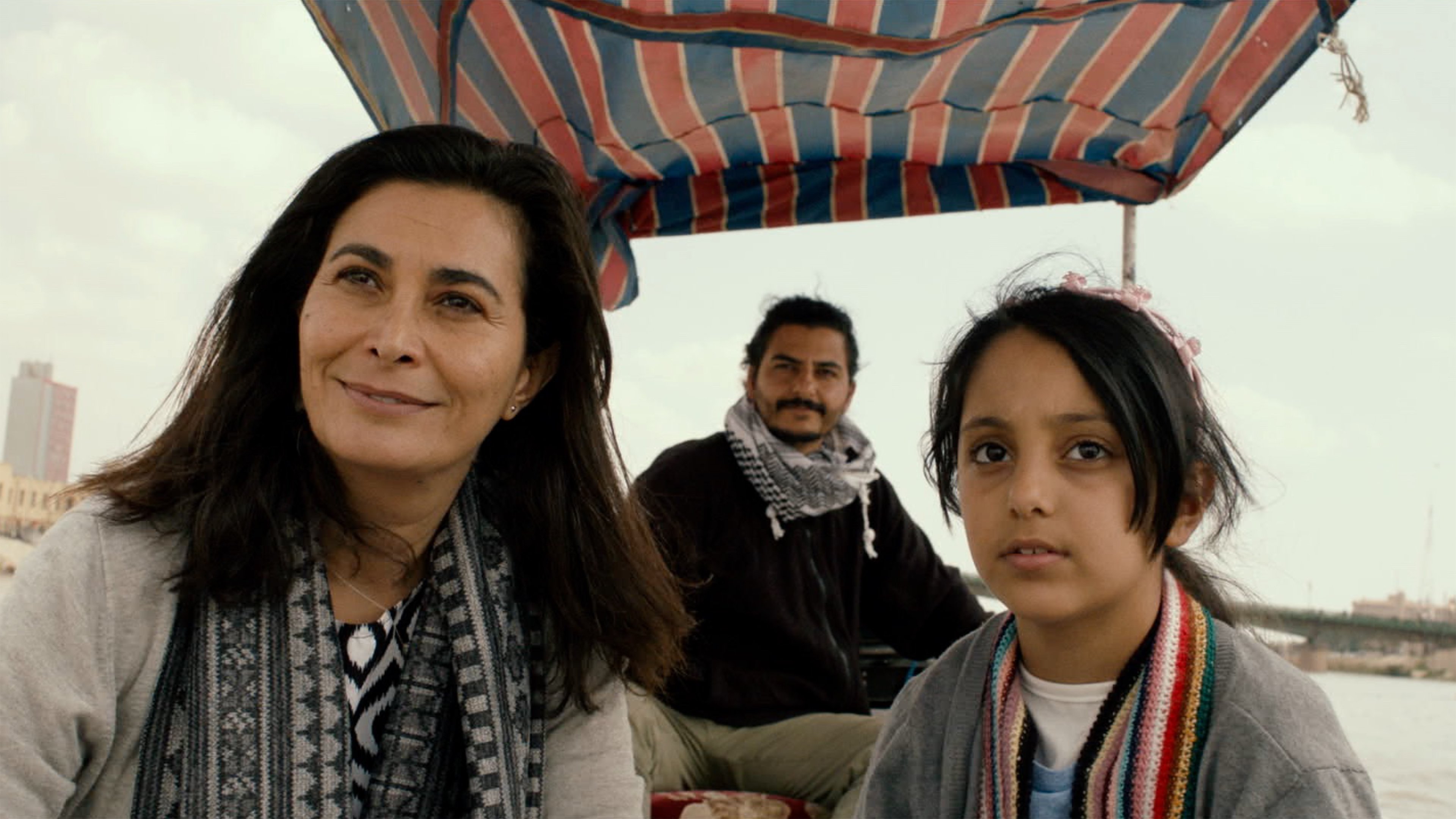
Our River... Our Sky
In a typically mixed Baghdadi neighbourhood in 2006, a community of ordinary people try to live their everyday lives amidst the threat of unpredictable violence. At the heart of these intersecting stories we find Sara, a single mother and novelist, who regains her will to write after witnessing the forced exile of her Christian neighbour and best friend Sabiha. With the news of Saddam Hussein's sudden execution shortly before the New Year, Sara and her neighbours brace themselves for an uncertain future. Yet, like a miracle, each is able to sustain a fragile sense of hope.

CinemaSerf@Geronimo1967
"Sara" (Darina Al Joundi) is a frustrated writer who lives with her young daughter "Reema" (Zainab Joda) in Baghdad in 2006. To put it mildly, it's a war zone. The Allies have only recently removed Saddam Hussein and the city is in chaos. Sunni and Shia mistrust, local warlords and racketeering make Al Capone look like Mother Theresa. "Sara" is sort of resigned to this existence until her close friend "Sabiha" (Badia Obaid), who happens to be a Christian, is forced out of their community and somehow that seems to galvanise her. She regains a little of her mojo and determines to write again. Can she sustain that new-found enthusiasm as the bombs land ever closer to their home or, perish the thought, might escape from the only place either of them have ever known be the best solution? The story of "Sara" is but one of the threads here as we take an overview of just how a normal urban community tries to live amidst a situation that would prove intolerable to all but the strongest. We see a society - of old and young; zealous and less so, all trying to reconcile their lives to the new, largely lawless, environment. What's written large here by director Maysoon Pachachi is that for the vast majority of them, this is about dignity - and not sacrificing it. This is a community that wants to thrive, wants to get on with life and that wants to take care of each other - despite the terrors being regularly visited on it. The production does deliver well a strong visual sense of the peril they face and the characterisations are powerful yet vulnerable and strong - especially the young "Reema". The presence of the boatman on the Tigris provides an almost Shakespearian-style role in providing some stitching to the film without his character having any hugely significance in itself. It is a slow burn, so don't expect a great deal to actually happen. There are no quick fixes or ideal solutions. This is more of an observation of just how a constant struggle is bravely and defiantly faced by people who really do deserve better.
